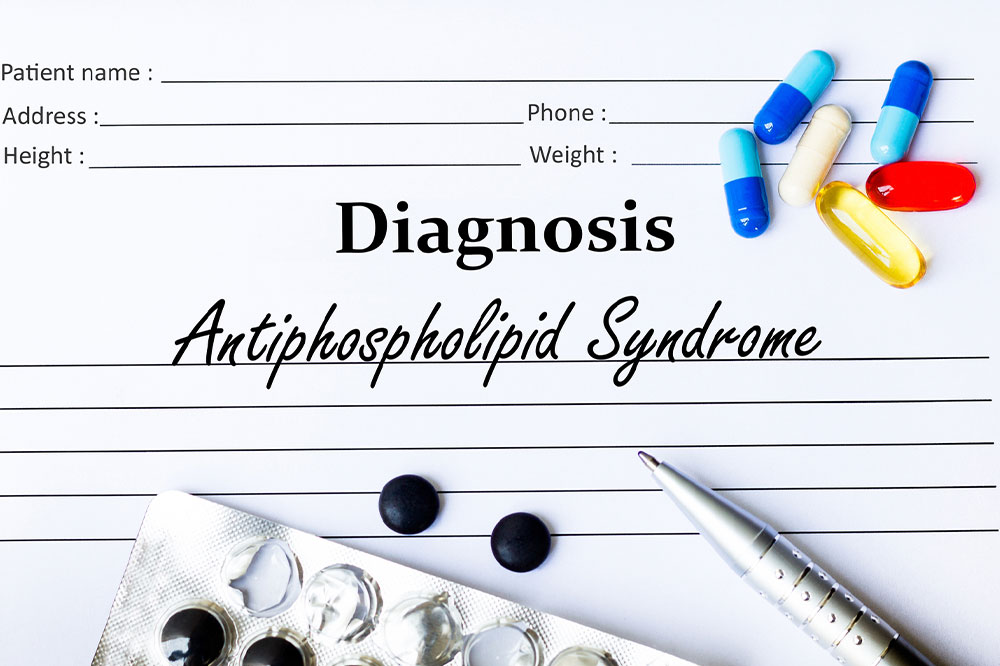
Antiphospholipid syndrome – Signs, causes, diagnosis, and more
Antiphospholipid syndrome (APS) is an autoimmune condition that affects the immune system and leads to an increased risk of blood clots. It prevalently affects young women, and sometimes the causes are unclear. This condition is also linked to pregnancy complications in women. Most people with this disease have no apparent symptoms, and there are many actionable treatments for people showing signs. Fortunately, doctors know enough about APS, the tests for diagnosis, and the apt treatment.
Symptoms
Some common symptoms associated with APS are:
- Rashes
People with the syndrome may develop a net-like, lacy pattern rash around certain areas of the body. - Stroke
A young patient may get a stroke sans any known cardiovascular disease risk factors. - Transient ischemic attack
Like a stroke, a transient ischemic attack lasts only a few minutes and leaves no permanent damage. - Deep vein thrombosis or blood clots in the legs
People with antiphospholipid syndrome may also experience DVT signs, such as swelling, pain, and redness. These clots may cause pulmonary embolism when they travel to the lungs. - Stillbirths or repeated miscarriages
Complications such as premature delivery and dangerously high blood pressure are also antiphospholipid syndrome symptoms.
Less-known antiphospholipid syndrome signs
- Cardiovascular diseases
The onset of the condition may damage the heart valves. - Neurological symptoms
The antiphospholipid syndrome may result in chronic headaches and other neurological signs such as seizures and dementia when blood clots curtail the blood flow in some parts of the brain. - Thrombocytopenia or low blood platelet counts
The drop in blood cells necessary for clotting can cause bleeding episodes, especially from the gums and nose. Bleeding into the skin will show as small red spots or patches.
Causes
One may develop APS when the immune system mistakenly yields antibodies that make blood susceptible to clotting. Antibodies typically guard the body against invaders, such as bacteria and viruses. It can stem from an underlying condition, like an autoimmune disorder. Some people may also develop it sans any underlying concern.
Tests for diagnosis
Merely having the antibodies does not confirm the onset of the condition. One must also have some health problems linked to it. Most antiphospholipid syndrome cases are diagnosed after a series of miscarriages or a clotting incident. Hence, if your doctor suspects the presence of APS, you must take two blood tests, and one or both must be positive. Further, you will be examined twice for at least twelve weeks for APS diagnosis .
Treatment
The primary goal of APS treatment is to avoid future episodes related to the health condition it causes, be it miscarriages or (and) blood clots. Doctors will recommend certain prescriptions or blood thinners to prevent blood clots. People who experience recurrent miscarriages or have APS will need prescription treatments to avoid future instances and deliver a healthy baby.
Further, the doctor will also recommend treatment measures for other conditions that aggravate your susceptibility to blood clots, such as diabetes, high cholesterol, high blood pressure, and other autoimmune disorders. Those with APS may also be recommended to opt for estrogen therapy (for birth control or menopause).




